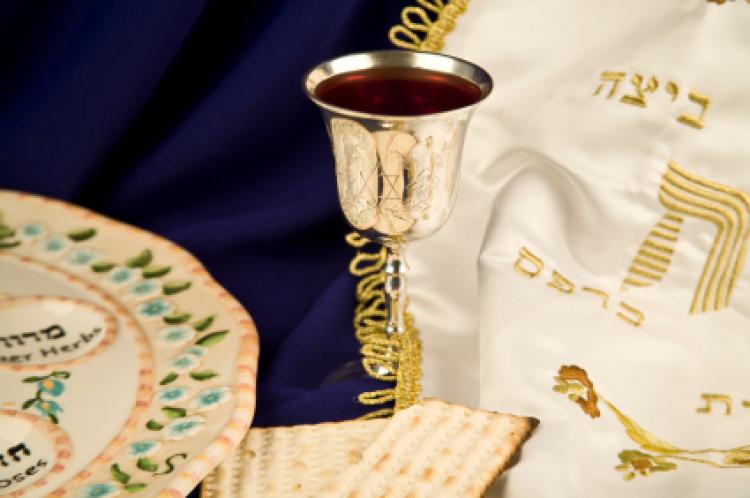
Do You Get a Black Moon?
What is a Black Moon, and why does it happen in December?
Many Jewish communities in the United States mark the last day of Passover as the end of a Jewish holiday that celebrates the deliverance of Jewish people from slavery in Egypt. Passover is also known as Pesah, Pesach, or the Feast of Unleavened Bread.
This is not a public holiday in the United States. Most businesses, schools, and offices are open and follow regular hours, but Jewish-run businesses and organizations might be closed.

Passover meals may include wine and unleavened bread.
©iStockphoto.com/Pears2295
Passover lasts for up to eight days (or seven days among Reform Jewish groups). There are many Jewish people who adhere to most of the Sabbath observances during the last day of Passover. Some may take a holiday around this time of the year. It is also a time for Jewish people to recite special blessings or prayers, as well as visit a synagogue or listen to readings from the Torah and eat a ceremonial meal.
Many Jewish families in the United States eat a ceremonial meal known as the Seder, which involves telling the story of the exodus from Egypt as well as eating various symbolic foods, such as meat of the paschal lamb and bitter herbs (recalling the harsh life of slavery).
None of the Passover days are federal holidays in the United States. However, many Jewish businesses and organizations are closed for some of the days or have restricted opening hours on others.
Passover celebrates Jewish people’s deliverance from slavery in Egypt. It is one of the three pilgrim festivals. Passover is related to the Christian observances of Good Friday and Easter Sunday and the Islamic Day of Ashura. Read about other Jewish observances, such as Tu B'Shevat (Arbor Day), Purim, Yom HaShoah, Lag B'Omer, Shavuot, Tisha B'Av and Rosh Hashana.
In the Jewish diaspora—Jewish communities outside of Israel—an extra day is usually added to religious observances, with the exception of Yom Kippur, which lasts only one day worldwide, and Rosh Hashana, which is celebrated over two days in both Israel and the diaspora.
This custom has its roots in ancient times when the beginning of the months in the Jewish calendar still relied on the sighting of the crescent Moon following a New Moon.
The beginning of a new month was determined by the Sanhedrin, the supreme court of ancient Israel in Jerusalem. Once the date was published, messengers were dispatched to spread the news among Jews living abroad. Since this process took some time, it was decreed that Jews outside of ancient Israel were to observe every holiday for 2 days to make sure that the rules and customs applicable to each holiday were observed on the proper date. This rule is still observed today.
Note: The dates listed below this article are for the 8-day Passover observation.
Note: Jewish holidays begin at sundown the day before the date specified for the holiday.
| Year | Weekday | Date | Name | Holiday Type |
|---|---|---|---|---|
| 2019 | Sat | Apr 27 | Last Day of Passover | Jewish holiday |
| 2020 | Thu | Apr 16 | Last Day of Passover | Jewish holiday |
| 2021 | Sun | Apr 4 | Last Day of Passover | Jewish holiday |
| 2022 | Sat | Apr 23 | Last Day of Passover | Jewish holiday |
| 2023 | Thu | Apr 13 | Last Day of Passover | Jewish holiday |
| 2024 | Tue | Apr 30 | Last Day of Passover | Jewish holiday |
| 2025 | Sun | Apr 20 | Last Day of Passover | Jewish holiday |
| 2026 | Thu | Apr 9 | Last Day of Passover | Jewish holiday |
| 2027 | Thu | Apr 29 | Last Day of Passover | Jewish holiday |
| 2028 | Tue | Apr 18 | Last Day of Passover | Jewish holiday |
| 2029 | Sat | Apr 7 | Last Day of Passover | Jewish holiday |
While we diligently research and update our holiday dates, some of the information in the table above may be preliminary. If you find an error, please let us know.

What is a Black Moon, and why does it happen in December?

When will the next comet be visible?

Why do mornings keep getting darker after the December solstice?

Some states in the United States observe the Day after Christmas Day as a public holiday.